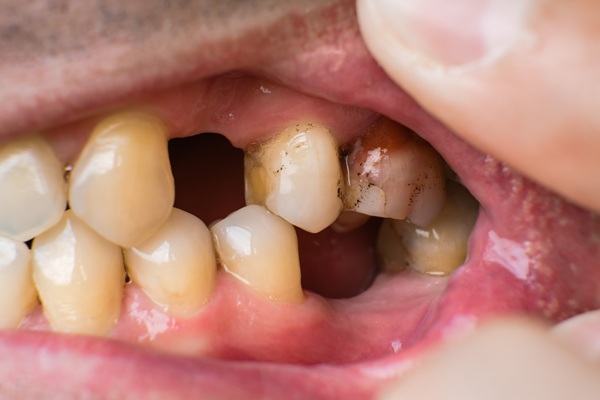Why Wisdom Teeth May Be Vulnerable to Tooth Decay
fit in well in some people’s mouths, but you may not have the same luxury. These teeth can grow in at odd angles and be misaligned and misshapen. Your dentist may recommend a wisdom teeth extraction surgery. Doing this can help you avoid serious dental problems and other oral health issues in the future. These teeth can create many challenges and concerns.
Facts about wisdom teeth
These teeth are also known as the third set of molars. They come in between the ages of 17 and 25. Though many people have two on both the top and bottom jaw, other people may have only three, two, or one. Some individuals may not have any.
There was a time when these molars were essential for chewing food. But today, because of the way people cook their food, these teeth are not necessary. Dentists recommend that patients have their third molars removed before age 20. A dentist will remove these teeth whether they have erupted or have yet to emerge through the gums.
Tooth decay and its causes
Tooth decay is one of the most common conditions that dentists diagnose and treat. Young people are particularly prone to it, though it can affect anyone. When the sugars and starches from food and drinks remain on a persons’ teeth, bacteria can form and start to eat away at the enamel layer. This creates small holes called cavities. Untreated, the holes can grow, threatening the health of the tooth. Poor brushing and flossing, along with a diet high in sugar, can lead to decay.
Hard-to-reach spots
It is difficult to effectively brush wisdom teeth because of the location of these teeth in the mouth. An individual may not spend enough time brushing these teeth because of the challenge of getting the toothbrush to them. Some people may simply not bother trying to brush these teeth because of the difficulties. Flossing posing the same problems. A lack of flossing will make it difficult to remove plaque from in between teeth and at the gumline. Failing to brush and floss in these areas can lead to decay.
The way the wisdom teeth grow
Oral hygiene can suffer when teeth are crooked or twisted. Wisdom teeth often grow this way. The brush and toothpaste may not hit both sides of a wisdom tooth’s surface effectively. As a result, the tooth can accumulate bacteria and eventually plaque and tartar. Before long, cavities can develop, causing pain and discomfort.
Another reason to remove your third set of molars
Wisdom teeth can create both cosmetic and health problems. You may be prone to having tooth decay if one wisdom tooth grows in your mouth. Now might be the right time for you to talk to your dentist about removing these teeth. Schedule an appointment with your dentist today to see if this procedure is right for you and your needs.
Are you considering a wisdom teeth procedure in the Mountain View area? Get more information at https://smilesdental.com.
Check out what others are saying about our dental services on Yelp: .
Recent Posts
Do you think your wisdom teeth may need to be removed? Wisdom teeth extraction, whether complete or partial, is a standard procedure that comes by recommendation of a dentist. Sometimes, it could be because they were coming in crooked or placing too much strain on your jaw or neighboring teeth. If you have undergone a…
Many dental patients find themselves needing a wisdom tooth extraction. Wisdom teeth, the third and last set of molars, usually erupt in a person’s late teens or early 20s. While some patients will have no problems with their wisdom teeth, these molars often become problematic and cause issues that require extraction.It is important for dental…
Wisdom teeth cannot fit in the mouth. Four of your adult teeth are wisdom teeth. These teeth erupt after the second molars are already set in the back of the mouth. Because of this, wisdom teeth do not erupt the right way. Some of them cannot even break through the gums. If you want to…
Dentists regularly field questions about wisdom teeth from patients and young patients’ parents. If you are approaching the age when extracting these teeth is common, you may be curious as well. There are a lot of reasons why dental professionals recommend removing these molars. As you understand more about these teeth, you may realize why…


